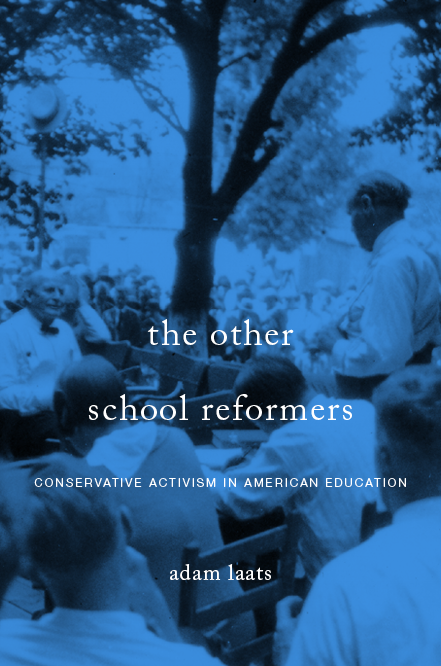Can a firmly conservative Christian college save America? Or should it focus on saving souls? This is a question conservative evangelicals have been asking themselves for almost a century. As I detail in my 1920s book, the first generation of Protestant fundamentalists hoped a new clutch of truly Christian colleges could heal America’s benighted culture.
The recent dust-up at The King’s College over the personal life of celebrity president Dinesh D’Souza illustrates this inevitable tension.
According to a recent article by Melissa Steffan in Christianity Today, The King’s College has moved itself away from the hurly-burly of D’Souza’s brand of cultural politics. When asked if the college would keep D’Souza’s trademark political obstreperousness while finding new leadership, interim president Andy Mills replied, “[TKC] is a Christian college. Period.”
According to Steffan, TKC has changed its self-description:
“In the presidential search that led to D’Souza’s hiring, TKC published a list of ‘”true ideas” that distinguish King’s within … higher education,’ including ‘biblical competition’ and the right to ‘seek prosperity and risk bankruptcy.’ TKC no longer lists these on its website.”
Even more intriguing, Steffan points to similar changes at similar schools:
“Gene Edward Veith, provost at Patrick Henry College, says his school’s conservatism has become ‘more sophisticated’ since its founding in 1998. What he described as a ‘meltdown’ in conflict between faculty and administrators six years ago ‘was mainly a matter of the institution maturing and going through some disillusionment struggles,’ he said. ‘I see that happening across the board. Christian activists who get involved with politics soon find that things are not so simple as getting Christians elected.’”
What direction for Patrick Henry and The King’s College? Without their distinguishing dedication to ferociously conservative politics, do they become quiescent Christian colleges? In the case of TKC, the question is whether they return to a long previous life avoiding headlines instead of chasing them.





Patrick
/ December 4, 2012You may find this article interesting if you haven’t already seen it: http://www.nytimes.com/2007/09/30/magazine/30Christian-t.html. It highlights the way New Saint Andrews approaches the culture wars differently than schools like Patrick Henry College. I’ve been wondering if some schools are going to move more in the direction of the former, engaging more with culture and less with politics.
Adam Laats
/ December 4, 2012Patrick, Thanks, I hadn’t seen that article. I’m often surprised by the historical perspective voiced by the leaders of Patrick Henry and The King’s College. Even Worthen’s article mentions this about New St. Andrews. The referents are often either medieval or early modern colleges–Oxford, Cambridge, and 17th century Harvard in the Worthen article about NSA–or late twentieth and early 21st century schools such as Liberty and Patrick Henry. What about the longer twentieth-century story of conservative Christian higher ed? Where are the lessons from the decisions of Blanchard at Wheaton? Or Gordon College? Or new 20th century schools such as Bob Jones, Northwestern College (Riley’s school, not the Chicago/Evanston university) or Dallas? Des Moines University? What about Fuller Seminary? I admit my enormous ignorance about the latest batch of conservative Christian colleges, but I don’t understand why we don’t hear more meditation among leaders of this new batch of schools about the lessons learned from 20th century experiments in conservative Christian colleges hoping to reform the church and society. It seems that schools such as Patrick Henry, TKC, and even NSA find themselves reinventing the wheel. Seems paradoxical for a higher-education tradition that seeks to reclaim the glories of traditional higher education.
Patrick
/ December 6, 2012Interesting question…I’ve thought about it quite a bit and don’t know precisely what the answer is either. The general attitude I’ve picked up from books and conferences and my past seven years in Christian education is a narrative that something went horribly wrong at the beginning of the twentieth century, and that essentially all Christian schools either dumbed down their academic standards or lapsed into theological liberalism or shallowness. These sorts of recently established liberal arts schools are thus an attempt to restore a kind of academic and theological commitment and rigor in which these older schools at least appear to serve as a superior paradigm. In the context of secondary education, with which I’m much more familiar, this often translates into a preference for teachers to hold degrees in the subjects in which they teach rather than degrees in education or teaching, because not much value is placed on “modern” educational methods, even if taught at a Christian college like Bob Jones.
Adam Laats
/ December 6, 2012It just seems to me as if some of the historical iterations of these subjects would be of more interest to people in Christian education, classical or otherwise. For instance, the move toward “content” degrees for teachers has a long history, most famously in the move toward Masters of Arts in Teaching degrees. At first, these degrees were usually exclusively in the subject areas. Over time, they have tended to incorporate more pedagogical coursework. Another prime example is the unbreachable statement of faith at “new” twentieth century conservative schools like BJU. At BJU, the new statement of faith (1926) included a proviso that it shall never be altered. This rule came about in large part as a response to the perceived apostasy of religious schools such as the University of Chicago. The rigid rule was an effort to avoid the kinds of “growing pains” that have bedeviled The King’s College and Patrick Henry. I can understand not wanting to follow that model, but I don’t understand the notion that earlier attempts at maintaining academic rigor AND rigorous Biblical religion do not seem to be studied or discussed.
Patrick
/ December 6, 2012Good points…I agree and would personally like to see more discussion in this regard.